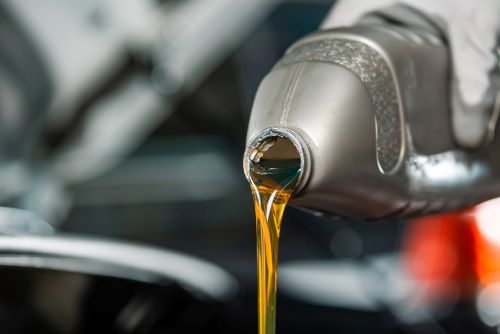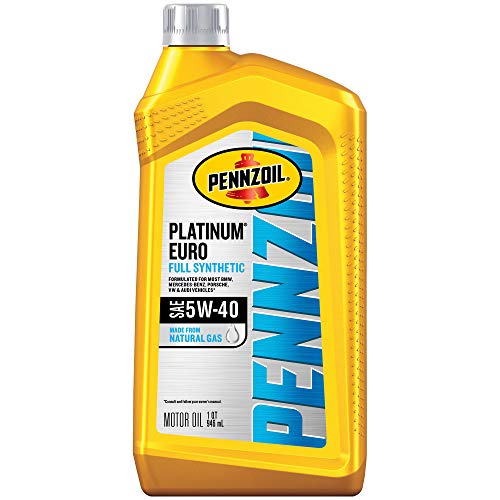As with many automotive sounds, the answers to ‘Will Thicker Oil Quiet Engine Noise?’ is yes/no/maybe/sometimes. Because you need to identify the noise–then remedy it. In this short article, we will help you do both.
What is Causing the Engine Noise?
- Lifter Noise. Quite often you will hear a tapping, or ticking, sound coming from the motor–especially when you first start up because almost all of the oil has drained into the oil pan. (Note: The noise will be particularly loud, and last longer if the vehicle has been standing for some time.) Usually, it will disappear once oil is circulating throughout the system.
- Rod Knock Noise. Rod knock is the noise you can hear as the bearing between the crankshaft and connecting rod wears. As opposed to lifter noise, which usually sounds like the tapping is coming from under the valve covers, rod knocking sounds like it comes from deeper inside the motor. The knocking will speed up with increased RPM.
- Getting Old and Tired Noise. As miles pile up, things wear down. Eventually, they wear out. The prime purpose of all lubrication is to slow down wear and tear and extend the life of metal moving parts–in this case, your motor, and all of its moving parts. Virtually everything inside the block is bathed in oil, or moves on a film of oil.
Thicker, Heavier Oil Solutions
All vehicles come with or came with, an owner’s manual. (Or you can usually download one.) One of the things you will find in it is the type and weight of oil recommended for the vehicle–such as SAE 5W-20. 5 signifies the viscosity. W stands for winter. 20 is the oil thickness and signifies its resistance to thinning at operating temperature. Sticking with the manufacturer’s recommendations is the best bet–especially for a new vehicle. Although you can usually substitute oil that is one weight heavier, or lighter, without significant performance or mileage differences.
Note: I drive in 30 degree below zero weather every year. Some of you live in places where 30 below is a measure of sea level. So check with the dealer to make sure the recommended oil will work in your location. I have run Quaker State SAE 5W-20 in my Ram Hemi for over 340,000 miles. No tapping. No knocks. Of course, it is a Dodge!
Quiet Lifter Noise
Heavier oil will not quiet hydraulic lifter noise. Quite likely you will get the opposite effect because thicker oil takes longer to reach the top of the engine. The lifter tapping, or ticking, will be louder. Most vehicles are equipped with hydraulic valve lifters. (Unless they have overhead cams–in which case there are no lifters.) These lifters have a small hole in the body of the unit to allow oil to enter. Heavy oil may not be able to fill the lifter quickly, especially when the vehicle is cold, and you will hear the lifters tapping. The noise will usually go away as the motor and oil heat up. If the tapping continues after the vehicle is warm, you may have one, or more, faulty lifters. As any oil gets dirtier, the chance of lifter noise increases; heavier oil just makes the problem worse.
Whatever oil you are using–even a heavy oil–make sure you change it regularly. Recommendations vary from 3000 to 5000 miles. Every 10,000 miles is regular too–I guess. But not very helpful. Dirty oil is the enemy of lubrication and long motor life.
Note: For more information on valve lifter fixes, please see our article: How to Fix Noisy Lifters.
Quiet Rod Knock Noise
Rod knock is usually the first signal that the end of your motor, as you know it, is coming. In this case, heavier oil should prolong engine life. As the connecting rod bearing wears, the gap between bearing and rod gets bigger and will not hold the necessary amount of oil to provide proper lubrication and cushioning. The noise is made by the crankshaft hitting the rod because of the extra space created by wear to the bearing. Heavier, and thicker, oil can supply more of a cushion in the gap. For instance, SAE 10W-40 remains thicker than SAE 10W-30 at operating temperature.
Another option to thicken your oil and get more viscosity is to use an additive such as STP Oil Treatment either instead of, or in addition to, thicker oil.
Heavier oil is not a cure. It can reduce, or eliminate, the knocking for a time and prolong the life of your engine. But eventually you will have to deal with re-building it, replacing it, or getting a new vehicle.
Quiet Old and Tired Noise
Thicker, heavier oil, or oil thickening additives, such as the STP Oil Treatment (or one of the many other options) are definitely a good idea to prolong the longevity of older motors. It will fill the bigger gaps between moving metal parts, and will adhere better to the metal. Don’t go crazy and change from SAE 5W-20 to SAE 10W-50 all at once. Just try one grade heavier. If you decide on an oil additive, try one bottle, or a part of a bottle, first. In some cases, more might not be better.
Note: If using an additive, put it in when changing oil, and leave out some oil. One bottle of STP is approximately one pint. In a 4 quart motor, this means you are adding 12.5% in volume if you put in the full 4 quarts–then add the STP. If your motor is not leaking or burning oil, the additional volume puts extra pressure on the gaskets and seals, which could result in a leak as the gasket fails.
Thicker oil is not a cure-all, but if by using it, you can extend vehicle life by even a few thousand miles; you end up ahead of the game. (And you may get many thousands of extra miles.)
As your vehicle ages, there will be more noises coming from under the hood–many of them from peripheral parts like water pumps, power steering, loose or wearing parts. Sometimes it is quite difficult to isolate the sounds, making it hard to determine the cause. If you are not certain where noises are coming from, it may be well worth a trip (and relatively few dollars) to a mechanic for a diagnosis and with any luck, some helpful suggestions.
Note: During the minute it takes you to travel one mile (at 60 miles per hour), the crankshaft in your motor has rotated 2000 times (assuming a cruising RPM of 2000 Revolutions Per Minute). Every other part in the motor has moved as many times as required–at least multiple hundreds. So even with the best maintenance and lubrication things will wear.

Thicker Oil Cautions
Just a few things to keep in mind once you have thicker oil in the engine:
- Make sure you give the motor a little extra time to warm up whenever you start it. Thicker oil takes longer to get to operating temperature. Therefore, it takes longer to get sufficient lubrication to all the moving parts.
- Jack Rabbit starts from every red light may (emphasis on may) impress Betty Lou. But slamming your gas peddle foot to the floor constantly creates stresses that even thicker oil will not combat over time. And hearing a rod punch through your block just before the motor quits for good tends toward depressing.
Heavy Synthetic Oil
Switching to synthetic oil is usually a great choice. It will do a much better job of lubricating your engine. But beware–especially with older vehicles. Sometimes using synthetic oil will cause you engine to start making noise that did not exist before. Synthetic oil is so slick that it can slip through borderline bearing clearances without providing sufficient lubrication. If you now have a noise that did not exist, drain out the synthetic and go back to your old oil. Maybe moving up a weight if you think the motor will stand it.
In a lot of cases, changing to synthetic oil will not cause noise. but because it is so pure, it may allow you to hear an existing noise that was masked by your heavy conventional oil.
Will Heavy Synthetic Oil Perform Better?
Yes, synthetic oil will almost always perform better than conventional oil. But, as mentioned above, you may not appreciate the noise it could cause. It will not perform better on older motors where bearing clearances are too large for the synthetic oil to buffer the gap.
End Notes
Just a few final thoughts:
- SAE stands for Society of Automotive Engineering. This organization came up with a system to grade motor oil according to its viscosity. This provides users with the confidence that whatever product or manufacturer they choose, certain standards are being met. For more information see SAE – Wikipedia.
- Change the oil. Other than running into a light pole at 60 MPH, nothing ruins a motor faster than dirty oil recycling dirt, varnish, metal filings, and unidentifiable glop around, and through, moving metal parts. Change the filter, too–every oil change. A new one costs next to nothing compared to your motor.




Great information! Thank you. I have read much on various weights of oil and your word sounds the beat….more thorough.
Good to hear it was helpful.
Terry
Terry, I have been attempting to rid this 2007 Avalon (I just bought) of a knock/click noise for several month now. Some say it is VVTi related. I have cleaned the solenoids and reinstalled with oil, changed oil twice and did the ATF trick also. Still clicking at 5 MPH to about ten….not any better. But, it did clean up things so well that the engine actually got noisier. So, I changed oil again, this time with general purpose 10W40. Now its quiet! But for how long? That’s the mystery.
Hi Shell,
Sounds like you are winning. I would change oil again as soon as you hear it ticking. Same 10W40. And see if you get a longer period of time on the second go around. Might also try an oil additive.
Terry